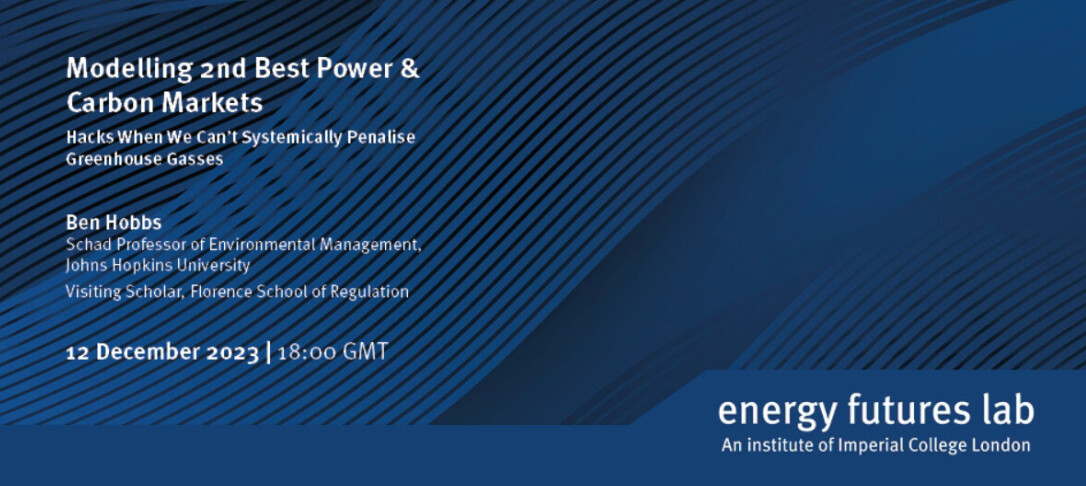
Modelling 2nd Best Power & Carbon Markets: Hacks When We Can’t Systemically Penalise Greenhouse Gasses
Drastically reduce U.S. emissions of greenhouse gasses we must. Federal, state, local, and industrial decision makers are considering using policy tools that hopefully achieve an affordable decarbonised power sector and economy by 2050 or earlier, but particular policies can risk costing a lot with little pollution reduction to for it. The “first best” solution of the “law of one price” faced by everyone in the economy is out of reach, and the US federal approach is one of industrial policy under the 2022 Inflation Reduction Act. For those of us who design electricity markets and plan its infrastructure, a challenge is: can we design complementary “second best” policies that will help the transition to a zero-carbon power system that will keep the lights on, and effectively reduce emissions at a reasonable cost?
I review some of these policies, and how market equilibrium modelling with optimization-based methods can provide insights for policy makers on whether particular power & carbon market reforms promote or hinder efficiency in decisions made by power plants and consumers concerning what equipment to install for producing and using power, and how to operate that equipment.
Biography:
Ben Hobbs has been at JHU since 1995 in what is now the Department of Environmental Health & Engineering, and has previously been on the faculty at Case Western Reserve University and a researcher at Brookhaven and Oak Ridge National Labs. He’s on sabbatical at the Florence School of Regulation and has also been an Overseas Fellow at Cambridge University. He is a Life Fellow of IEEE and Fellow of INFORMS, and received a Presidential Young Investigator Award from President Reagan. He serves on the State of Maryland’s (Climate) Mitigation Work Group and Air Quality Control Advisory Council, and has been a member of the California power market surveillance committee since 2002, and now chairs the committee. He, along with JHU’s Yury Dvorkin, Imperial College’s Mark O’Malley, and U of Melbourne’s Pierluigi Mancarella, lead a NSF-EPSRC-CSIRO funded international center on managing renewable-dominated power systems, in collaboration with industrial and policy partners at the Global Power System Transformation Consortium, Future Power Markets Forum, and Energy Systems Integration Group.
About Energy Futures Lab
Energy Futures Lab is one of seven Global Institutes at Imperial College London. The institute was established to address global energy challenges by identifying and leading new opportunities to serve industry, government and society at large through high quality research, evidence and advocacy for positive change. The institute aims to promote energy innovation and advance systemic solutions for a sustainable energy future by bringing together the science, engineering and policy expertise at Imperial and fostering collaboration with a wide variety of external partners.